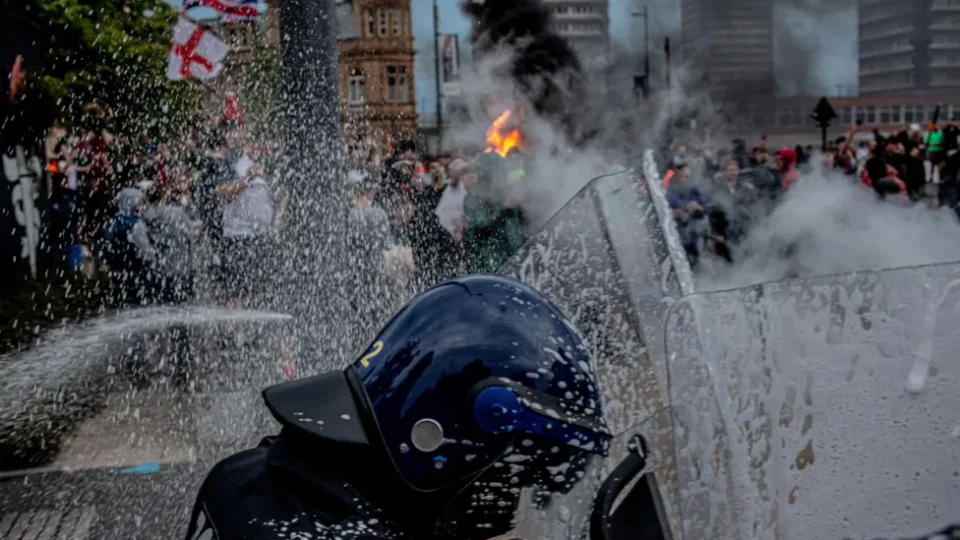Sports governing bodies have met with UK government officials to discuss strategies for calming rising tensions amid the worst riots seen in a decade across England and Northern Ireland.
Since July 30, violence has erupted in various towns and cities, fueled by online misinformation, far-right groups, and anti-immigration sentiments. Over 400 individuals have been arrested, with 140 facing charges, while counter-protests against anti-immigration rhetoric have generally remained peaceful.
BBC Sport understands that the Department for Culture, Media and Sport (DCMS) held a video call on Wednesday with representatives from several organizations, including the Premier League, English Football League (EFL), Rugby Football Union (RFU), and Rugby Football League (RFL), to discuss the implications of these tensions for the sporting community.
With the English domestic football season set to begin on Friday, Secretary of State for Culture, Media and Sport Lisa Nandy emphasized the importance of promoting cohesion and tolerance within sports organizations and teams. Government officials are eager for fixtures to proceed as scheduled, despite the added strain on police resources due to the riots.
The RFU condemned “all acts of racism and violence,” asserting that rugby should unite communities. “For our clubs, we encourage you to embrace your respective communities and ensure the safety of yourselves and your neighbors,” the organization stated.
Similarly, the RFL highlighted that “inclusion is in rugby league’s DNA” and urged supporters to “respect each other, celebrate the diversity of our communities,” and demonstrate the best of rugby league.
As of now, the Football Association, Premier League, and EFL have not released comments regarding the situation.
Potential Football Bans for Rioters
Individuals convicted of rioting could face bans from attending football matches under existing powers granted by the Football Offences Act. Reports have indicated connections between far-right activists and organized football hooligan groups implicated in the violence.
Policing Minister Dame Diana Johnson stated that “all options are being considered” regarding crowd safety at sporting events. In an interview on BBC Radio 4’s Today programme, she expressed confidence that clubs do not wish to have violent individuals seated in their stands.
“I’m sure the Secretary of State for Culture, Media and Sport will discuss this with those organizations,” Johnson added.
Clubs Focus on Safety
As for upcoming matches, four EFL games, including Championship fixtures featuring Preston and Blackburn—both of which have seen recent unrest—are set to proceed on Friday. Preston confirmed their match against Derby County at Deepdale would go ahead, stating, “The football club has met with the Safety Advisory Group and we do not anticipate any issues that would lead to postponement.”
Newcastle United is also taking precautions for friendly matches at St. James’ Park on Saturday, indicating that “mitigation measures are in place” amid planned protests in the city. Manager Eddie Howe expressed hope that there would be no confrontations, wanting the area to be respected.
Middlesbrough, hosting Swansea in the Championship on Saturday, backed “the strongest possible action” against those responsible for disturbances in their town, pledging support for law enforcement efforts.
Blackburn Rovers announced heightened security measures outside Ewood Park before their Championship season opener against Derby County, while League One side Reading noted a “significant police presence” at their away match against Birmingham on Saturday evening, expressing confidence that the match would proceed without incident.
The Premier League champions, Manchester City, will face FA Cup winners Manchester United in the Community Shield at Wembley on Saturday, amidst ongoing efforts to maintain safety and order across the sporting landscape.
Credit: BBC Sports




